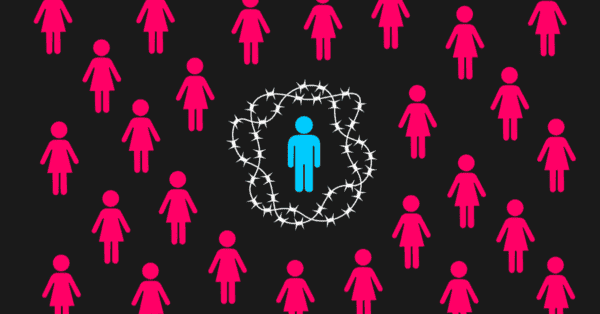What is the manosphere?
The manosphere is a network of online men’s communities against the empowerment of women and who promote anti-feminist and sexist beliefs. They blame women and feminists for all sorts of problems in society. Many of these communities encourage resentment, or even hatred, towards women and girls. There are four main groups:
- Men’s rights activists (MRAs) advocate political changes that will benefit men. However, much of their activism consists of harassment and abuse towards feminists and other female public figures.
- Men going their own way (MGTOW) argue that women are so toxic that men should avoid them altogether. Some MGTOW will date women but avoid anything serious like getting married, while others won’t even be friends with women.
- Pick-up artists (PUAs) teach men seduction strategies so that they can be more successful in attracting women. Many of these techniques involve mistreating women, such as insulting them (“negging”) or disregarding consent.
- Involuntary celibates (incels) believe they are entitled to a relationship with a woman, but are incapable of finding a partner. Multiple acts of extreme violence and even murder have been attributed to this group.
How are young people influenced?
A 2020 HOPE not hate report demonstrated how the manosphere influences young people’s beliefs about feminism; boys are repeating manosphere talking points in school and even harassing female teachers. The report found that 50% of young men aged 16-24 believe feminism makes it more difficult for men to succeed.
Owen Jones, head of education and training at HOPE not hate, says that gender equality is the most difficult subject to teach. Many students don’t believe sexism is a problem and, when teaching the subject, there “is an aggressive backlash from male students, who not only deny the issues, but try to silence any notion of female empowerment or critique of male culture.” This can make it difficult to have productive conversations about important issues like sexism or gender stereotypes in the classroom.
How do young people find the manosphere?
Many manosphere groups host their own websites and have seen increasing traffic with some seeing growth from thousands to millions of users. However, these groups can also be found on popular social media platforms such as Instagram, Facebook, and Twitter. Reddit in particular is home to many manosphere communities, although the most popular MGTOW and incel subreddits have been banned.
Young people may also find the manosphere via YouTube, as the ‘watch next’ algorithm has been known to recommend increasingly sexist and anti-feminist content in order to keep users engaged. TikTok may be another avenue, as the MGTOW and pick-up artist communities in particular are becoming more prevalent there.
What language should I look out for?
There are several words and phrases which suggest that someone is familiar with the manosphere, such as:
- Red pill: learning the ‘truth’ about female nature and that feminism is about oppressing men
- Blue pill: not having taken the red pill and so living in blissful ignorance
- Alpha male/Chad: an attractive, successful man desired by all women
- Beta male/Cuck: an average man who has not yet taken the red pill and is inferior to the alpha male
- Femoid/foid: ‘female humanoid’, mostly used by incels
- Gynocentrism: the theory that society revolves around and is dominated by women
However, not everyone uses this sort of language. It is also important to look out for generalising statements made about women and men, such as making claims about how all women act or talking about men and women as if they are two different species.





